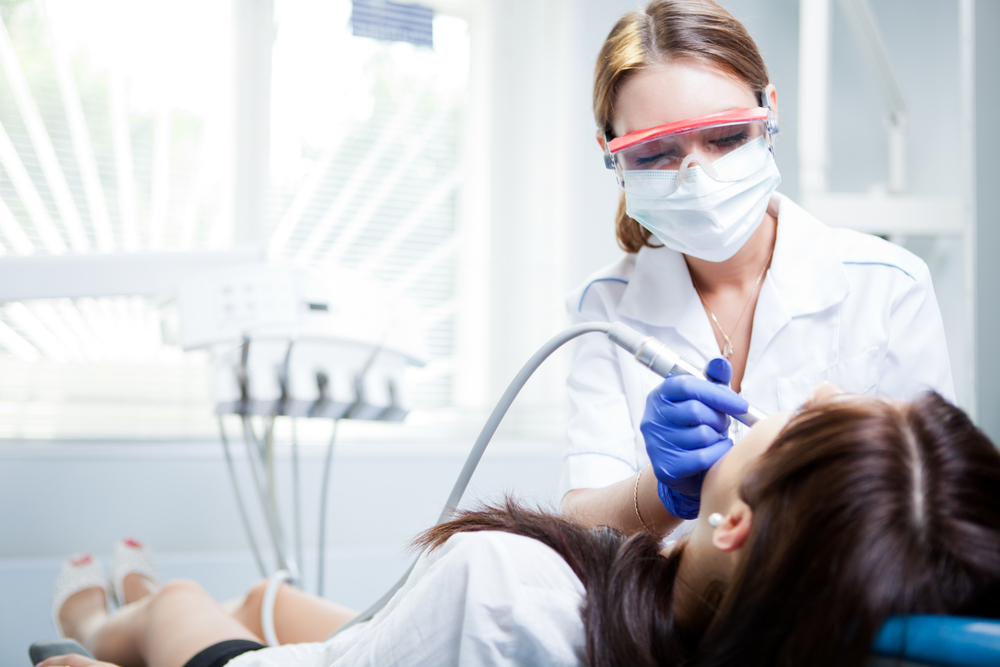
Gum disease surgery may sound intimidating, but once you know what to expect, there’s really nothing to worry about.
Gum disease ranks as one of the most serious dental conditions in the U.S. The Centers for Disease Control and Prevention estimates 46 percent of adults age 30 or older have some form of gum disease, with nine percent suffering from advanced gum disease or periodontitis. Fortunately, gum disease surgery can reverse the course of periodontitis to restore your oral health.
If you need gum disease surgery, it’s normal to feel apprehensive. Knowing what to expect can alleviate some of that apprehension.
How gum disease surgery can help you
Gingivitis, a mild form of gum disease, is characterized by swollen, bleeding gums. It can be successfully treated with non-surgical methods and good oral hygiene.
However, if gum disease progresses to severe periodontitis, you’ll likely experience loose teeth, bad breath, and receding gums. At this stage, surgery is necessary to restore the health of your gums.
While gum disease surgery may sound scary, it’s a commonly performed dental procedure with high success rates. The surgery aims to:
Remove bacteria and plaque. Gum disease develops when bacteria from plaque multiply and infect the gums and bones supporting the teeth. Bacteria and plaque often lead to tartar, a solid substance that damages the gums. The first step in reversing gum disease is removing the bacterial infection.
Prevent tooth loss. The CDC notes that gum disease is the leading cause of tooth loss in the U.S. Gum disease surgery is often recommended to prevent tooth loss.
Regrow damaged tissue and bone. Your gums and bones support your teeth. But an excess of bacteria, plaque, and tartar can erode gum and bone tissue. Gum disease surgery can regrow and strengthen your bones and gums, thus keeping your teeth firmly in place.
Reduce gaps between the gum line and teeth. As gum disease advances, the gums pull away from the teeth, leaving a gap of what is known as a black triangle. Gum disease surgery can close that gap and reattach the teeth to the gums.
Reshape the jaw bone. Bone loss can lead to crevices where bacteria can grow. Reshaping the jaw bone reduces that risk.
What to expect before, during, and after your gum surgery
Gum disease surgery is performed by a dentist or a periodontist specializing in gum disease. They will guide you through all the steps, from preparation to recovery.
Before the surgery. Your dentist will review your medical history and examine your teeth and gums for signs of infection or loose teeth. They will also discuss the risks and benefits of the surgery.
During the surgery. There are different types of gum surgery. Depending on the type, you’ll receive either a local anesthetic or IV sedation. Flap surgery involves making an incision in the gums, cleaning the gums of bacteria and tartar, and stitching up the gums. A gum graft will use tissue from the roof of the mouth to fill in the gaps between the tooth and gum line. Similarly, a bone graft will add volume and density to the jawbone using bone from the patient, a donated bone, or a synthetic bone.
After the surgery. You may be given a prescription pain medication. Your at-home care will include using antiseptic mouthwash to prevent infection. Your doctor will also recommend eating soft foods for a few days and avoiding vigorous exercise. You’ll return to the dentist for a checkup in about one to two weeks.
Once fully healed, you’ll want to maintain healthy gums and prevent new gum-damaging bacterial infections. Brushing and flossing daily removes most of the bacteria and plaque on teeth and gums. Limit sweet and starchy foods that promote bacterial growth and inflammation.
And most importantly, keep up with your twice-yearly dental checkups and cleanings. While you can reduce bacteria and plaque buildup, you cannot remove hardened tartar on your own. Those dental appointments will further allow your dentist to spot early signs of gum disease when it can be treated without surgery.
Need gum disease surgery? Espire Dental in Wyoming is the place
Schedule an appointment at Espire’s Cheyenne, WY, location today! Our highly trained dentists have years of expertise performing gum disease surgery and can make your experience smooth and comfortable. Don’t live near our Cheyenne, WY, office? Find one of our other locations near you.
Cheyenne, WY
7112 Commons Circle
Cheyenne, WY 82009

